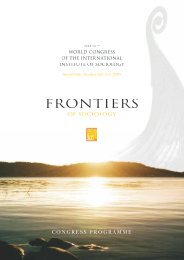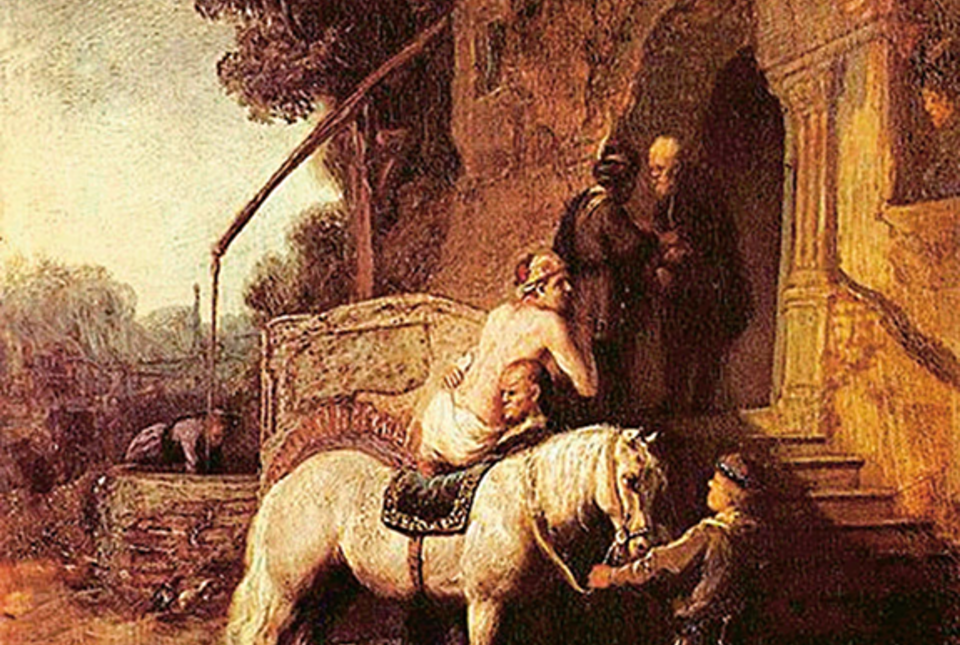Swedish Collegium For Advanced Study
- Swedish Collegium For Advanced Study Image
- Swedish Collegium For Advanced Study
- Swedish Collegium For Advanced Study
The General Fellowship Programme. About the Programme and the Eligibility Criteria The Swedish Collegium for Advanced Study (SCAS) offers a General Residential Fellowship Programme open to scholars from all countries. The programme gives fellows the opportunity to concentrate on their. Seminar to Swedish Collegium for Advanced Study in the Social Sciences, Uppsala, Sweden, 10th April. Oakley, Ann (1998). Science, gender, and women's liberation: An argument against postmodernism. Women's Studies International Forum, 21 (2), 133-146. O'Leary, Virginia (1977). Towards understanding women. California: Brooks/Cole.
Deadline: shortly Category: Scholarship Area: Arts & Humanities, Social Sciences Institution: Swedish Collegium for Advanced Study Location: Uppsala, SwedenLocated in the Botanic Garden in Uppsala, the Swedish Collegium for Advanced Study (scas) is a national institute for advanced study.The collections of Carolina Rediviva Library and other scientific facilities at Uppsala University are situated nearby.For the academic year 2018-19 the Collegium offers residential fellowships for senior scholars. The fellowships afford scholars the opportunity to concentrate on their own research interests. Fellows are expected to be in residence and to participate in academic events beyond their own fields of specialization.The application may be for the entire academic year or alternatively for one academic semester.Candidates may come from any discipline within the humanities and social sciences. At the time of application, the candidates must have held a PhD for at least ten years and have a track record of significant and original research achievements.The holder of the fellowship receives a monthly stipend or salary. Accommodation for Fellows who do not live in the Stockholm-Uppsala region is arranged by the Collegium and all Fellows have their own fully equipped office at the Collegium.The application deadline is July 15, 2017.For further details, please see the General Fellowship Programme information at the scas website. Please direct questions to fellowselection@swedishcollegium.se.www.swedishcollegium.se.

Since the beginning of the 20th century, the so-called Muslim rational philosophers have been revisited by Arab and Muslim scholars in their search for some sort of rational classical basis for a reformulation of modern life and thought. How to select all pictures. Often this has led into polarized perceptions of modernism and traditionalism.
In recent years works have appeared that attempt to provide a novel approach to the study of Islam by unveiling intellectual layers which have not been given proper attention but which prove to have been dominant in Islamic thought. My work on the theme of the 'four journeys' (al-asfar al-arba'a), which was developed by the followers of Muhyiddin Ibn al-'Arabi (d. 1240), grows out of this approach.The theme of the four journeys is depicted by the process of the ascent of the philosopher-mystic from the reality of the shadows, which is represented in Plato's Allegory of the Cave as the reality of prisoners chained in a cave, to the sun, which represents philosophical truth and knowledge, and the process of his return to the cave.An earliest account of this theme was presented by 'Afif al-Din al-Tilimsani (d. 1290) in his commentary on the work of the tenth-century Sufi Muhammad b. 'Abd al-Jabbar al-Niffari. Another important account was presented by Sa'id al-Din Farghani (d.1300) in his commentary on a famous long poem by the Sufi poet 'Umar Ibn al-Farid (d.
This was followed by what I consider as the most comprehensive and systematically articulated account of this theme introduced in 1290 by the Baghdadi Sufi Sit 'Ajam bint al-Nafis in her commentary on Ibn al-'Arabi's book Contemplations of the Holy Mysteries, which he composed in imitation of al-Niffari's work. A second wave of followers of Ibn al-'Arabi's school provided their accounts of the four journeys, including important figures such as 'Abd al-Razzaq al-Qashani (d.

Swedish Collegium For Advanced Study Image
1329) and Dawwud al-Qaysari (d. The theme of the four journeys became so dominant in later Islamic thought that the seventeenth-century philosopher and theologian Sadr al-Din al-Shirazi chose the 'four journeys' as a title for his major philosophical work. Yet, the theme has not received the proper philosophical attention that it deserves in modern scholarship.In my research project, I highlight the special significance of the study of this theme for understanding one of the most original and highly innovative aspects of the later Islamic mystical-philosophical tradition. I present my study of this theme, which I conduct in a manner which makes it accessible to philosophical issues and free of ideological debates, as a contribution to the reconciliation of the rational, the mystical and the traditionalist divides in the Arab and Muslim world. I also endeavor to highlight the relevance of the conceptual framework underlying my study to the general understanding of our contemporary Western philosophical investigations.
Swedish Collegium For Advanced Study
'Ibn al-‘Arabi between al-Mahdawi and al-Niffari', Journal of the Muhyiddin Ibn ‘Arabi Society, vol. 68, 2018, pp. The Long Shadow of Max Weber: The Notion of Transcendence and the Spirit of Mystical Islam', Journal of Levantine Studies, vol.

Swedish Collegium For Advanced Study
129-151.The Story of Islamic Philosophy: Ibn Tufayl, Ibn al-‘Arabi and Others on the Limit between Naturalism and Traditionalism, State University of New York Press, Albany, 2011.Ibn al- ‘Arabi’s Barzakh: The Concept of the Limit and the Relationship between God and the World, State University of New York Press, Albany, 2004.' An Excursion into Mysticism: Plato and Ibn al-‘Arabi on the Knowledge of the Relationship between Sensible Objects and Intelligible Forms', American Catholic Philosophical Quarterly, vol.